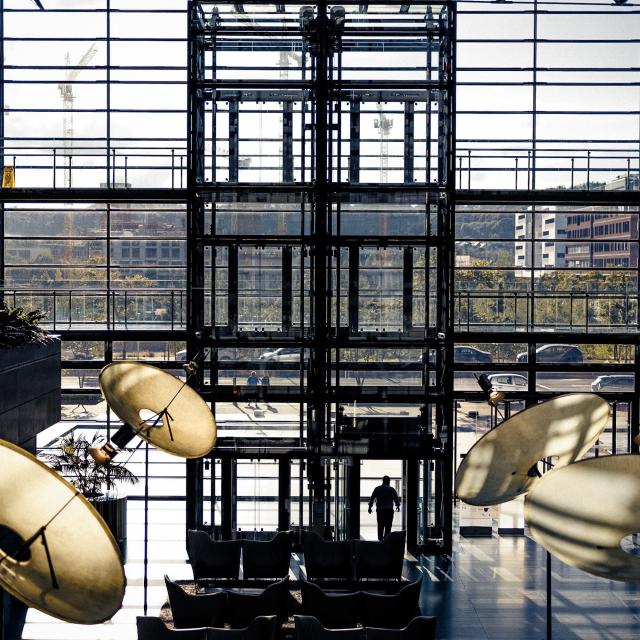Luxembourgish at heart – and soon on paper, too
By Misch Pautsch Switch to German for original article
For most people, their nationality is a constant in their lives. But sometimes the lived reality no longer matches what is written on the identity card and a small but well-considered change becomes necessary. Five people tell us about their motivation to "definitively" arrive in their adopted country.
Slightly tense waiting dominates the room at the Université Populaire in Esch/Alzette. None of the 20 people who have gathered here today know each other yet – but they are united by one goal: to add Luxembourg nationality to their passports. A projection of the "Gëlle Fra" looks splendidly at them, next to it the writing: "Vivre ensemble au Luxembourg: Les droits fondamentaux des citoyens" (Living together in Luxembourg: Citizens' fundamental rights). Course leader Dany Assua looks around and asks in French: "Have you all already taken the language test? No? That's a pity, otherwise we could have done the course in Luxembourgish." It has never happened before, he reassures. "The vocabulary would probably also be a bit difficult, " jokes one of the participants, visibly reassured, although she had previously answered the question in the affirmative.
The course, organised by the Service de la Formation des Adultes (Adult education department), lasts a total of 24 hours and aims to impart basic knowledge about life in Luxembourg. And it is becoming more popular every year: in 2017, 485 certificates were offered to future Luxembourgers, in 2019 it was already 1,851 and in 2022 a proud 2,645. Of the total of 10,500 people who successfully acquired Luxembourg nationality last year, 1,033 did so through naturalisation. The rest acquired it by option, for example if they have a Luxembourgish parent or married a Luxembourger, or by "re-naturalisation" if the connection goes back further. Here, the 3080 Brazilians listed in 2022 have attracted particular attention, and their votes are already being courted by politicians – controversially on the ground.
The prize for the 24 hours is the certificate "Vivre ensemble au Grand-Duché de Luxembourg", one of the three requirements for naturalisation. This makes it – between the language test and the five years of residence in Luxembourg – probably the requirement that takes the least time. Those who live in the fast lane can also take the corresponding exam, in which 28 out of 40 questions have to be answered correctly. But with a modest 515 participants (compared to the 2,645 present in the course), the course is clearly more popular, writes Yasmine Streweler, responsible for "Vivre ensemble et Nationalité", itself part of the Service de la formation des Adultes at the request of the Lëtzebuerger Journal.
You want more? Get access now.
-
One-year subscription€185.00/year
-
Monthly subscription€18.50/month
-
Zukunftsabo for subscribers under the age of 26€120.00/year
Already have an account?
Log in


